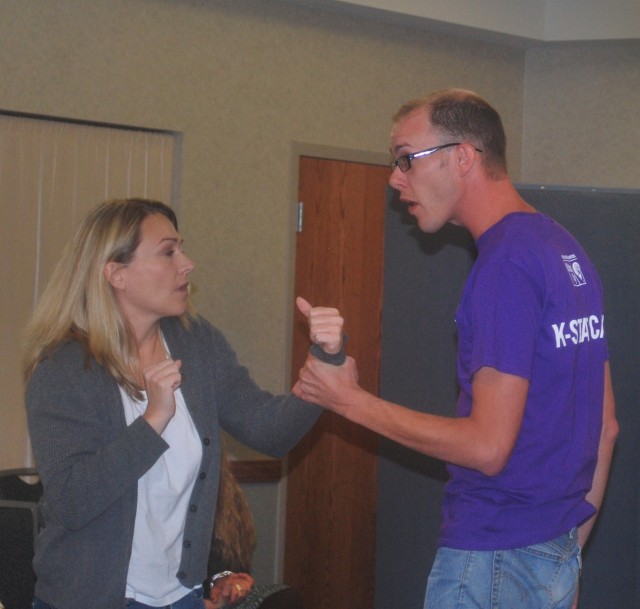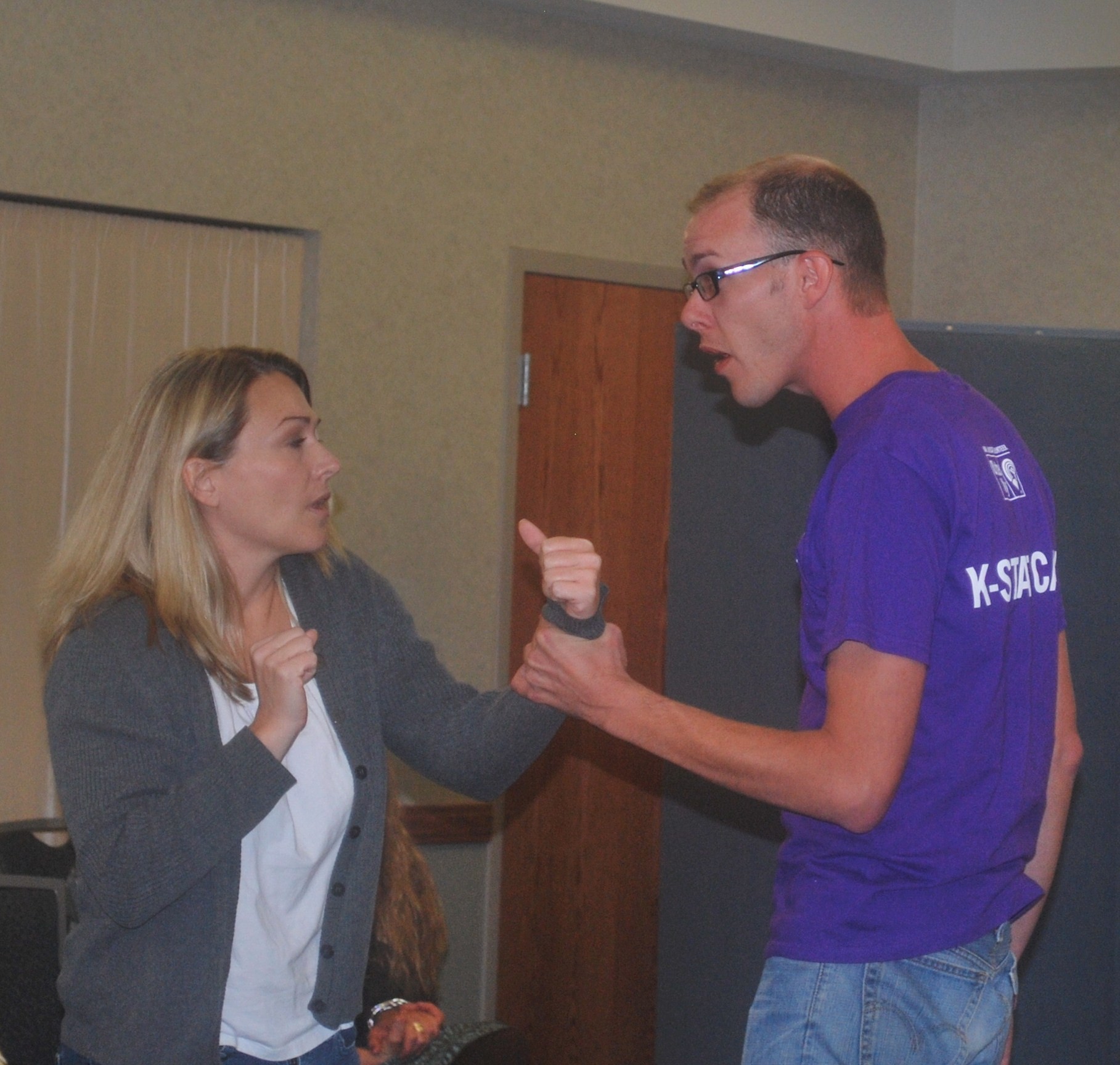FORT RILEY, Kan. - Professionals from Fort Riley and the surrounding community participated in the workshop, "Will You Hold My Child'" to learn how to better serve military Families experiencing domestic violence Oct. 19 at Riley's Conference Center.
The Fort Riley Family Advocacy Program and the Kansas Coalition Against Sexual Assault and Domestic Violence partnered for the event to educate therapists and social workers not familiar with the military on the ways in which the chain of command becomes involved during a domestic violence case.
Joseph Kulbiski, Family Advocacy Program manager, said the military is unique because it involves the employer in cases like domestic violence.
"The company commander and the garrison commander become involved in cases of domestic violence, and they are a great help. With stressors like deployment cycles, with Soldiers going in and out constantly, their employer wants to make sure they are being taken care of," Kulbiski said.
The program began with a play portraying domestic violence in the home and the impact it has on children.
Two actors played the roles of husband and wife, as well as children, and took the group through the cycle of domestic violence from neglect, to physical arguments and 911 calls, to court orders and judge rulings.
Kathy Wood, Child and Youth Projects team leader from the Kansas Coalition Against Sexual Assault and Domestic Violence, walked the group through the scenes of the play and discussed how each scene made them feel.
"When they (victims of domestic violence) come to us, all we see is what the sheet of paper says about the incident. We don't know what actually happened in the home," Wood said.
Wood spoke about the victim and aggressor's relationship with the therapist or counselor and signs to watch out for when speaking with either of them.
"An abusive parent represents well. They are good at maintaining control and composure and will always be on their best behavior in front of you. Domestic violence is a choice," she said.
She told the group in her experience, the only time they would even see aggression is when the batterer is being challenged.
She said the most important thing to remember during sessions is to trust the victim because they know their partner the best. When the victim says he or she fears for their life, it's important to believe them, she said.
"Accountability often comes too late, and as professionals, we don't act on it without evidence or until it's too late," she said.
The group also discussed what to do when a child was in the home during a domestic assault.
The number one factor of a child being resilient is their relationship with the parent, Woods said. Many times a parent will say they'd rather kill their child than let him or her live with the other parent.
"Last year, 14 children were murdered in Kansas in connection with domestic violence," she said.
Bob Clifton, Family Advocacy Program licensed marriage Family therapist, said he walked away with the knowledge not to be deceived by the aggressor's charm during a counseling session.
Carolyn Tolliver-Lee, Family Advocacy Program specialist, said other people who suspect a friend or neighbor is suffering with a domestically violent partner should report the incident immediately.
"Don't ignore it, report it," she said.


Social Sharing